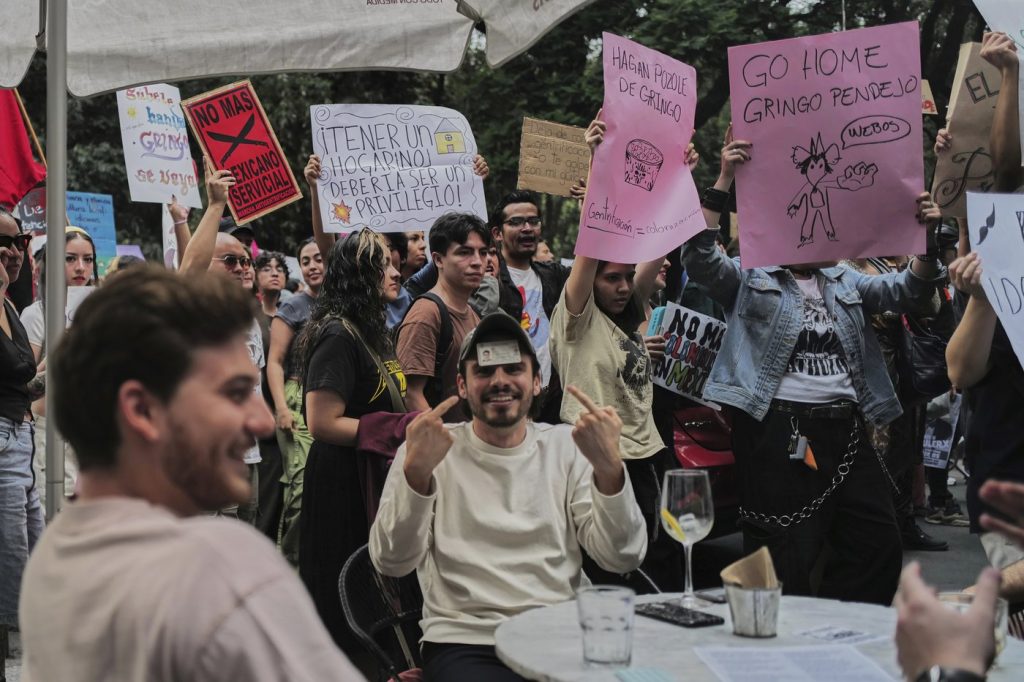MEXICO CITY (AP) — A protest against gentrification and mass tourism in Mexico City erupted into violence on Friday, as hundreds of demonstrators initially gathered peacefully in the tourist-frequented neighborhoods of Condesa and Roma. The event escalated when a small group of masked protesters began vandalizing storefronts and targeting foreign tourists, shouting at them to leave the country. The chaos saw windows smashed and high-end businesses looted, with graffiti messages such as “get out of Mexico” appearing on the damaged property.
Protesters displayed signs with slogans like “gringos, stop stealing our home,” calling for local legislation to regulate tourism levels and enforce stricter housing laws. The march progressed to the U.S. Embassy, where tensions intensified further, leading to the deployment of police reinforcements. The evening was marked by police sirens resonating throughout the city center, signaling an abrupt shift in the atmosphere from a day of peaceful demonstration to one of unrest.
The protest reflects a growing unease in Mexico City as the influx of "digital nomads" from the United States started in 2020, primarily driven by the pandemic and the allure of lower rental costs in the Latin American metropolis. The rapid increase in the number of foreign residents has resulted in soaring rent prices, pushing many locals out of their traditional neighborhoods—a point raised by participants like Michelle Castro, a 19-year-old college student. Castro lamented the transformation of her working-class city center community, describing how buildings have increasingly been converted into tourist accommodations.
“Mexico City is going through a transformation,” she expressed. “There are a lot of foreigners, namely Americans, coming to live here. Many say it’s xenophobia, but it’s not. It’s just that so many foreigners come here, rents are skyrocketing because of Airbnb. Rents are so high that some people can’t even pay anymore.” Castro's testimony highlights the socio-economic challenges resulting from rising housing demands fueled by tourism.
This protest in Mexico City follows a pattern seen in other major cities worldwide, notably in Europe. Demonstrations against mass tourism have occurred in cities such as Barcelona, Madrid, Paris, and Rome, drawing attention to similar issues faced by locals in heavily toured neighborhoods. These global movements reflect broader concerns about the impact of tourism on housing affordability and community integrity.
The events of Friday in Mexico City starkly illustrate the tensions that arise at the intersection of tourism, housing, and local identity. As communities grapple with the consequences of globalization and migration, the protests serve as a potent reminder of the ongoing struggle between preserving local culture and accommodating the demands of a thriving tourism industry. The unfolding situation in Mexico City continues to be a focal point for discussions about gentrification and how best to balance the interests of residents with those of visitors.











